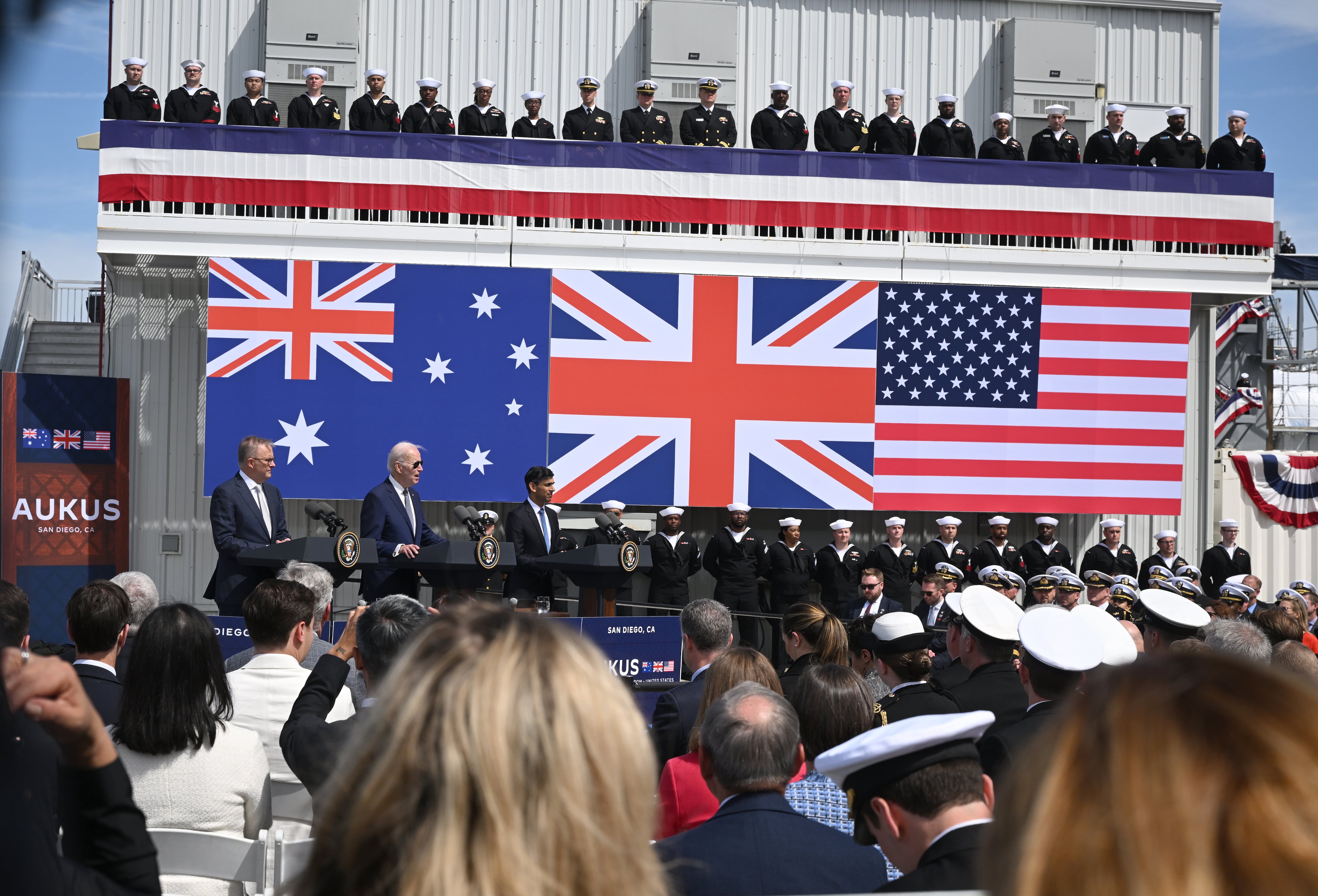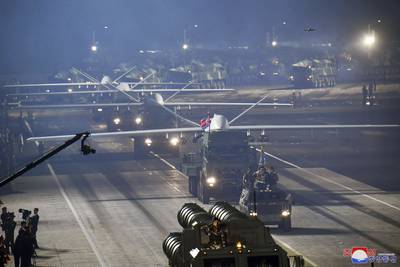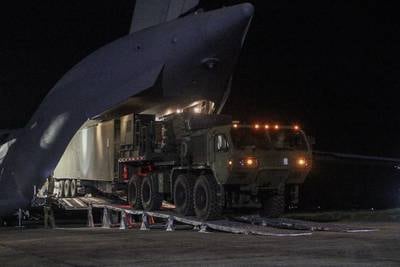GRAZ, Austria — Austria intends to bolster its air defenses by introducing long-range air defense missiles to its armed forces starting in 2027, the country’s government announced in a Nov. 15 press conference in Vienna.
The decision follows the country’s recent accession to the German-led European Sky Shield Initiative, which aims to set up integrated and interoperable air defenses across 19 European countries.
The Austrian defense ministry wants to have a procurement contract concluded by the end of 2026, a spokesperson told Defense News. To prevent the final decision from falling to the next government, Defense Minister Klaudia Tanner said that a draft law would soon be presented to parliament. Austria is set to hold legislative elections next year.
Two weapon systems are under consideration, Tanner said during the press conference, though she provided no information on the types. The prime candidates are widely believed to be the American-made Patriot system or the American-Israeli Arrow 3.
In a phone interview, a spokesperson for the Austrian military said it was “too early in the process” to say whether there was a preference one way or the other, adding that “it would be silly to rule out options from the get-go.” Such deliberations would take place “in the coming days, weeks or maybe even years,” he said.
Similarly, Tanner did not provide a price range for the planned procurement when asked during the press conference.
Discussions surrounding the topic are already being held with European partners, said the defense minister. A ministry spokesperson told Defense News that conversations were primarily happening with Germany.
In September, Austria announced its intention to purchase the German-made Iris-T air defense system for the short-range segment of the Sky Shield scheme. Berlin, for its part, signed a €4 billion ($4.4 billion) deal to buy Arrow 3 that same month.
German defense spokespersons could not immediately confirm a line of communication with Vienna about Arrow-3.
Critics here have argued that the government’s move to join ESSI would undercut Austria’s commitment to neutrality. Chancellor Karl Nehammer retorted on Wednesday that the final decision on whether to engage an object in Austria’s airspace would remain in Vienna. He said neither the Sky Shield initiative nor the procurement of long-range air defense systems would in any way limit Austria’s “military neutrality,” instead making it “defensive and credible.”
After years of low investment, the Russian invasion of Ukraine has spurred a new wave of funding and procurement for the Austrian armed forces. The government intends to almost double its annual defense spending by 2027, from €2.7 billion last year to €5.25 billion. Austria proclaimed its intent to join the European Sky Shield Initiative in July, and in the past months announced the purchase of new helicopters, armored personnel carriers and transport aircraft, among other upgrades.
Until 1990, Austria was prohibited by its 1955 state treaty with the Allied occupying powers from possessing any weapons with a range greater than 30 kilometers. At present, Austria’s ground-based air defenses consist only of “shortest-range” systems: MISTRAL missiles and 35mm anti-aircraft cannons, according to the armed forces’ website.
Linus Höller is a Europe correspondent for Defense News. He covers international security and military developments across the continent. Linus holds a degree in journalism, political science and international studies, and is currently pursuing a master’s in nonproliferation and terrorism studies.








